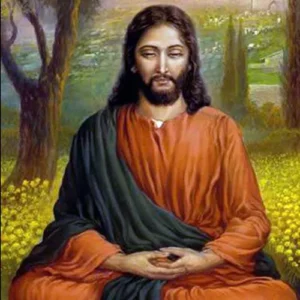The answer
Inevitably the longer Henri Nouwen stayed at the Abbey of Genesee, the more he began to see himself and his responses in a new light, and how clearly the spiritual and the psychological were interwoven. At one weekly meeting with John Eudes Bamberger, he asked for advice about the feeling of fatigue that he, Nouwen, felt around people. The Abbot, also a psychiatrist, rightly saw this as largely a psychosomatic problem, whilst at the same time advising Nouwen to make sure he got enough sleep and accepting the condition. The Abbot interpreted this problem as linked to Nouwen putting too much energy into any encounter, as if he had to prove himself every time that he was someone worth spending time with. He said: “You put your whole identity at stake – and every time you start from scratch … Prayer and meditation are important here because in them you find your deepest identity, and that keeps you from putting your whole self on the line every time you work with other people.” He added that people who meditate regularly need less sleep, as they are more at one with themselves, and don’t use others in their identity struggle.
This analysis fits with the Jungian idea that if, with others, we project too much persona that is at odds with our authentic self, then we are left very tired by the effort of our interactions with others. Too much energy is expended in either winning them over, placating or presenting ourselves in a certain light – a long embedded pattern from childhood and early relationships. In meditation and deep prayer there is no need for this persona – ideally, we can just be ourself.
Towards the end of Nouwen’s stay at the Abbey, he once again returned to the subject of his low self-esteem, his ongoing mixed feelings about making a total commitment to Christ, and his general lack of faith and weakness. John Eudes again saw that almost all the questions that had been raised over the months were part of the same problem which was Nouwen’s doubts about his self-worth. The way through was to slowly detach himself from the longing for human affirmation, and rather discover that it is through a relationship with God that the true self can be found. Nouwen writes: ‘When my “self” is anchored not in people but in God, I will have a much greater resistance against pain’.
In meditation some sort of distance can be created, and Nouwen could explore the small daily events in which his insecurities could be seen at work. Nouwen also queries that if only the Lord determines his identity and he, Nouwen, relates to the Lord as he relates to other people – by manipulation and projection is he then only making the Lord like himself – Nouwen? Then he would still be more concerned with himself than with the Lord. Nouwen wants instead to meditate on God’s terms, longing for God to break through Nouwen’s defences so that he can see and feel with his heart.
The very awareness of the question might suggest that Nouwen could see what he was doing. For ultimately in meditation, we are involved in letting go, or trying to see, acknowledge and then let go of these old habits, so that we can be without these defences and unashamed before God.
‘Nothing in all creation is hidden from God’s sight. Everything is uncovered and laid bare before the eyes of him to whom we must give account.’ Hebrews 4: 13
